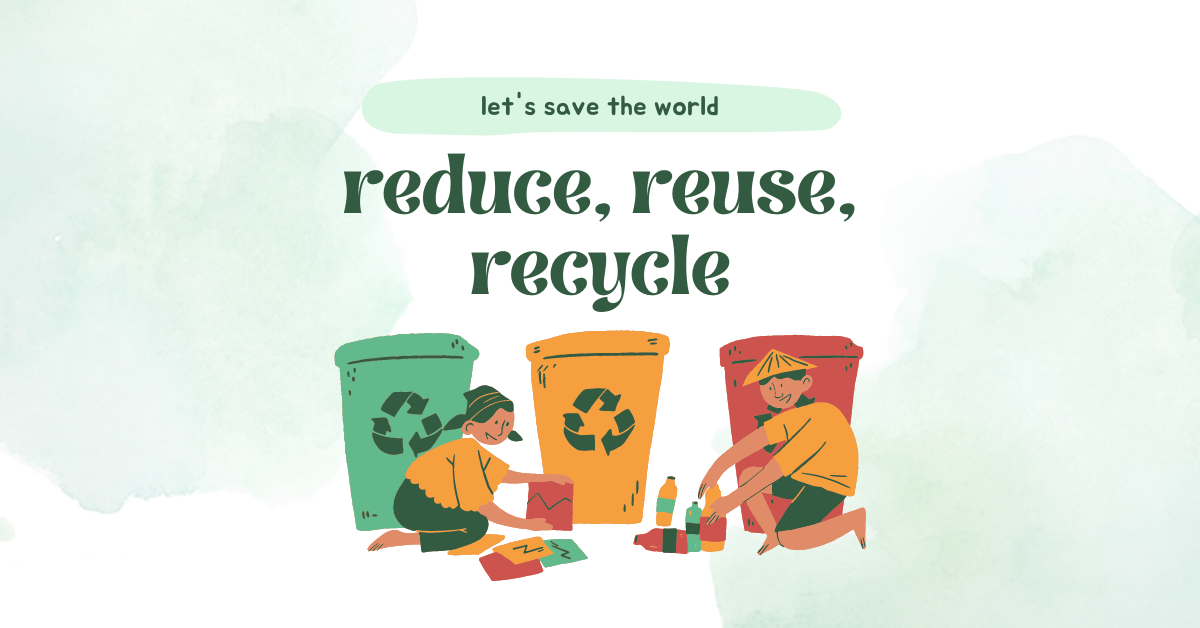Introduction
Let’s introduce you to the incredible potential of Goodwill Recycling. In today’s world, where environmental conservation is of utmost importance, Goodwill Recycling stands as a beacon of hope, offering a holistic approach to recycling that goes beyond mere material reuse. Through this article, we will embark on a journey to explore the profound impact of Goodwill Recycling, uncovering its significance, understanding how it operates, and discovering the myriad benefits it brings to individuals, communities, and the planet as a whole.
Goodwill Recycling is not just about finding a new home for unwanted items; it is about transforming lives and revitalizing communities. By embracing this transformative practice, we can contribute to sustainable solutions, support employment opportunities, and promote social responsibility. So, get ready to delve deep into the world of Goodwill Recycling and witness the power it holds to create positive change.
What is Goodwill Recycling?
Goodwill Recycling is a comprehensive approach to recycling that goes beyond the mere act of reusing materials. It is a system developed by Goodwill Industries, a renowned nonprofit organization, to create positive social and environmental impact. Goodwill Recycling focuses on accepting and repurposing a wide range of items, ranging from clothing and electronics to household goods and furniture.
History of Goodwill Recycling
Goodwill Recycling has a rich history that traces back to its origins in the early 1900s. The organization was founded in 1902 by Reverend Edgar J. Helms in Boston, Massachusetts, with the aim of assisting individuals in need by providing them with employment opportunities. Reverend Helms realized that people could donate unwanted items, which could then be sold to fund job training programs and support local communities.
Over the years, Goodwill expanded its operations and began accepting a wider range of items for donation. This marked the beginning of Goodwill Recycling as a comprehensive approach to recycling and repurposing goods. As society became more aware of the environmental impact of waste and the importance of sustainable practices, Goodwill saw an opportunity to further its mission by emphasizing the importance of recycling and reusing.
Today, Goodwill Recycling operates in numerous locations across the United States and around the world. It continues to evolve and adapt to meet the changing needs of communities, while staying true to its core mission of transforming lives through the power of work.
The Importance of Goodwill Recycling
Making a Difference in Communities
Goodwill Recycling plays a pivotal role in making a difference in communities worldwide. By accepting donations of gently used items, Goodwill provides an opportunity for people to declutter their homes while supporting others in need. The items donated are then sold at Goodwill stores, with the proceeds funding various programs and services aimed at helping individuals find employment and improve their lives.
Minimizing Waste and Landfill Impact
In today’s throwaway culture, waste management is a pressing issue. Goodwill Recycling offers an effective solution by diverting items from landfills and reducing waste. By extending the lifespan of products through donation and reuse, Goodwill significantly minimizes the environmental impact associated with manufacturing new goods.
How Does Goodwill Recycling Work?
Donation Process
Goodwill Recycling starts with the donation process, which is simple and convenient. Individuals can gather their unwanted items, ensuring they are in good condition and meet the organization’s donation guidelines. These guidelines often include cleanliness, functionality, and safety standards. Donors can then drop off their items at designated Goodwill donation centers or schedule a pickup.
Sorting and Processing
Once donated, the items go through a meticulous sorting and processing stage. Trained staff and volunteers carefully assess the items, determining their quality and potential for resale. Items that meet the criteria are priced and displayed in Goodwill retail stores. Those that are not suitable for resale are often recycled or repurposed through other means, ensuring minimal waste.
Benefits of Goodwill Recycling
Supporting Employment Opportunities
One of the remarkable benefits of Goodwill Recycling is its direct contribution to employment opportunities. The revenue generated from the sale of donated items enables Goodwill to provide job training, placement services, and other vital programs for individuals facing barriers to employment. By participating in Goodwill Recycling, individuals not only contribute to a sustainable future but also support their local communities.
Affordable Shopping and Thrifting
Goodwill stores have become synonymous with affordable shopping and thrifting. By donating your unwanted items to Goodwill, you enable others to access quality goods at lower prices. This affordability factor plays a significant role in fostering inclusive communities and reducing economic disparities.
Items Accepted for Goodwill Recycling
Clothing and Accessories
Goodwill gladly accepts a wide array of clothing items, including shirts, pants, dresses, jackets, and accessories such as shoes, belts, and handbags. These donations help provide individuals with affordable clothing options and contribute to reducing textile waste.
Electronics and Appliances
Electronics and appliances that are in working condition can find new homes through Goodwill Recycling. This includes items like televisions, computers, smartphones, kitchen appliances, and more. By donating these items, you contribute to reducing electronic waste and giving others access to affordable technology.
Where Can You Find Goodwill Recycling Centers?
Goodwill Recycling centers can be found in various locations across cities and towns. To locate the nearest center, you can visit the official Goodwill Industries website or use their mobile app. These platforms provide information on the closest donation centers, store locations, and even offer scheduling options for pickups.
How to Prepare Items for Goodwill Recycling
Clean and Organize
Before donating your items, it is important to clean and organize them. Ensure that clothing items are laundered and free from stains or tears. Electronics should be wiped clean of personal data and safely packed. By presenting items in good condition, you contribute to a seamless donation process.
Check Donation Guidelines
To ensure that your donations meet the organization’s criteria, it’s advisable to check the donation guidelines provided by Goodwill. These guidelines may vary depending on your location, so it’s important to review them before donating. This step helps in streamlining the process and ensures that your items can be accepted and put to good use.
Tips for Effective Goodwill Recycling
Regular Decluttering
Make decluttering a regular habit by periodically going through your belongings. This helps in identifying items you no longer need, making it easier to donate them to Goodwill. Regular decluttering not only promotes an organized living space but also contributes to the sustainability and positive impact of Goodwill Recycling.
Spread the Word
Spread awareness about Goodwill Recycling among your friends, family, and colleagues. Encourage them to join you in the movement and donate their unwanted items as well. By sharing the benefits and impact of Goodwill Recycling, you help create a larger network of individuals contributing to a sustainable future.
Goodwill Recycling and Environmental Impact
Reducing Resource Consumption
Goodwill Recycling plays a crucial role in reducing resource consumption. By extending the lifespan of products through donation and resale, it lessens the need for manufacturing new goods. This results in conserving raw materials, energy, and water resources, and helps mitigate the ecological footprint associated with production processes.
Mitigating Greenhouse Gas Emissions
The process of manufacturing new goods often generates significant greenhouse gas emissions. By participating in Goodwill Recycling and opting for reused items, individuals can directly contribute to reducing these emissions. This simple choice positively impacts our environment and helps combat climate change.
The Future of Goodwill Recycling
Goodwill Recycling is not stagnant; it is an ever-evolving and forward-thinking initiative that adapts to the changing needs and dynamics of our society. As sustainability becomes an increasingly important focus, Goodwill Industries is at the forefront of exploring innovative ways to maximize the impact of its recycling efforts.
In the future, we can expect to see Goodwill embracing digital platforms and technology to enhance the donation process. This includes the development of user-friendly apps and online portals that streamline scheduling, provide donation guidelines, and offer convenient pickup options. These digital advancements will make it easier than ever for individuals to participate in Goodwill Recycling, ensuring that the process is accessible and efficient.
Furthermore, Goodwill is continuously expanding the range of acceptable items for donation. While clothing and household goods have long been staples of Goodwill donations, the organization is exploring opportunities to accept and repurpose a broader array of items. This expansion opens up new possibilities for diverting waste from landfills and finding creative solutions for reusing and repurposing materials.
In addition to digital innovations and expanding acceptable items, Goodwill is committed to implementing environmentally friendly practices within its operations. This includes investing in energy-efficient technologies, adopting sustainable packaging and transportation methods, and optimizing resource management. By prioritizing eco-conscious practices, Goodwill aims to minimize its own ecological footprint and set an example for sustainable business operations.
Looking ahead, Goodwill Industries will continue to collaborate with communities, businesses, and organizations to create partnerships that promote environmental stewardship and social responsibility. By fostering alliances and sharing best practices, Goodwill can amplify its impact and inspire others to embrace the principles of recycling and community support.
The future of Goodwill Recycling is bright, promising a world where sustainable practices are the norm and where recycling becomes an integral part of our daily lives. With a commitment to innovation, inclusivity, and environmental responsibility, Goodwill will shape a future where recycling is not just a choice but a collective responsibility for a better world.
Goodwill Recycling and Community Support
Supporting Vulnerable Populations
Goodwill Recycling goes beyond environmental benefits by providing essential support to vulnerable populations. The revenue generated through donations and sales directly funds programs and services aimed at helping individuals with disabilities, veterans, and those facing economic challenges. By participating in Goodwill Recycling, individuals contribute to creating inclusive and supportive communities.
Volunteering Opportunities
In addition to donations, Goodwill also welcomes volunteers to support their operations. Volunteering at Goodwill provides a valuable opportunity to contribute to the organization’s mission, gain new skills, and connect with like-minded individuals. It’s a chance to make a tangible difference in your community and create lasting impact.
Conclusion
Goodwill Recycling is more than a concept; it represents a collective effort to reshape our relationship with the environment and with one another. Through the act of donating and repurposing, we not only divert items from landfills but also provide opportunities for individuals to rebuild their lives. By participating in Goodwill Recycling, we become agents of change, advocates for a sustainable future, and champions of inclusivity.
As we conclude this journey, let us remember that the impact of Goodwill Recycling extends far beyond the physical act of reusing and repurposing items. It creates a ripple effect that touches the lives of individuals in need, supports employment opportunities, and nurtures communities. Together, let us embrace the transformative power of Goodwill Recycling, turning waste into resources, and fostering a more sustainable and compassionate world for generations to come.
Frequently Asked Questions
Can I donate damaged items to Goodwill Recycling?
Yes, you can donate damaged items to Goodwill Recycling. However, it’s important to note that not all damaged items can be accepted. Goodwill has specific guidelines regarding the condition of donated items, so it’s advisable to check their website or contact your local Goodwill center for more information.
Can I get a tax deduction for my donations to Goodwill Recycling?
Yes, donations made to Goodwill are generally tax-deductible. However, tax laws can vary depending on your location and individual circumstances. It’s recommended to consult with a tax professional or refer to the official guidelines provided by your tax authority to determine the eligibility and requirements for claiming a tax deduction.
Can I donate items other than clothing and household goods to Goodwill Recycling?
Absolutely! Goodwill Recycling accepts a wide range of items, including electronics, furniture, books, and more. The organization aims to repurpose and sell items that are in good condition, benefiting both the environment and the community. It’s best to review the donation guidelines or contact your local Goodwill center to inquire about specific item acceptance.
How can I find a Goodwill store near me?
To find a Goodwill store near you, you can visit the official Goodwill Industries website or use their mobile app. These platforms provide store locators where you can enter your location and find the closest Goodwill retail locations. You can also explore their website for additional information on store hours and available services.
What happens to items that are not sold at Goodwill stores?
Items that are not sold at Goodwill stores go through a comprehensive recycling or repurposing process. Goodwill strives to minimize waste and maximize the value of donated items. Depending on the nature of the item, it may be recycled, refurbished, or repurposed through other channels to ensure that it does not end up in a landfill.





Pingback: Why Recycle? Your Ultimate Guide to the Big Green Reason
Pingback: Benefits of Recycling: Maximizing Your Impact for a Greener Planet
Pingback: Sustainable Fashion Brands: Redesigning Style Responsibly
Pingback: Recycling for Kids: A Journey Towards a Sustainable Future
Pingback: Facts About Recycling: Conserving Resources & Building Sustainability
Pingback: Solar 5e: Harnessing the Sun's Energy Like Never Before
Pingback: Bokashi Composting: Green Thumbs, Unite!
Pingback: History of Recycling: A Journey From Trash to Treasure
Pingback: Recycled Glass Countertops: The Eco-Friendly and Stylish Choice
Pingback: Why is Recycling Important? A Definitive Guide - Eco Life Wise
Pingback: Climate Change: The Facts That Will Make Your Jaw Drop! | Eco Life Wise
Pingback: Recycle Projects for Kids: Crafting a Greener Future
Pingback: Climate Change Reality: The Unvarnished Truth We Can't Ignore | Eco Life Wise
Pingback: Is Cardboard Recyclable? You Might Be Surprised | Eco Life Wise
Pingback: Sustainable Swimwear: A Deep Dive Into Eco Friendly Choices
Pingback: Self Sustainable Homes: 7 Practical Reasons Why You Need One Today! | Eco Life Wise
Pingback: Examples of Natural Resources: Unearthing Earth's Treasures | Eco Life Wise
Pingback: Recycling for Kids: Discover the Secrets of Saving the Planet
Pingback: Time to Shine Makers Make It Work Paperback Review: 10 Interesting Facts | Eco Life Wise